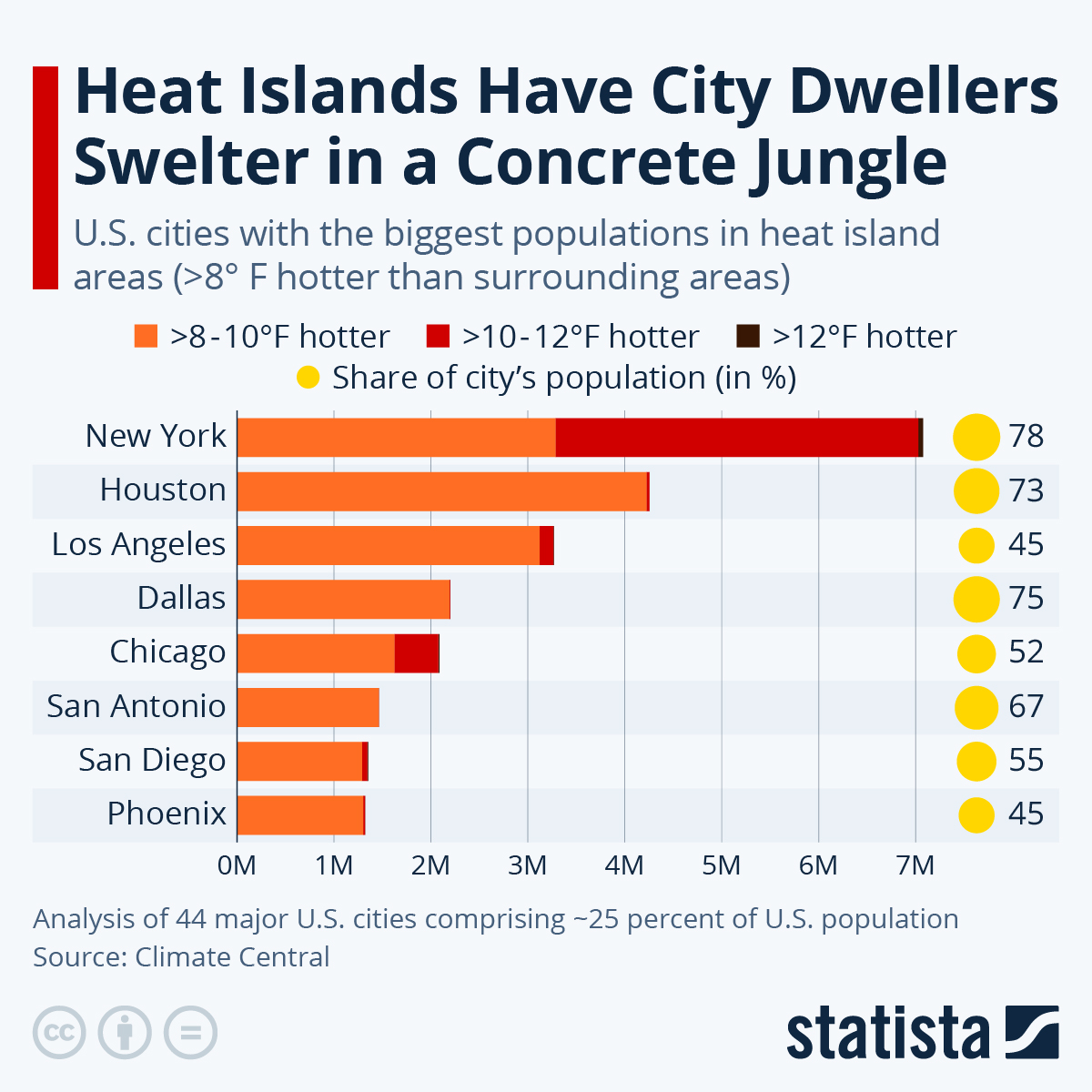As 130 million Americans are under a heat advisory Thursday morning and tens of millions more are on watch for or received a warning of excessive heat by the National Weather Service, one group of people is especially at risk of the negative consequences of very high temperatures: city dwellers.
According to a new study by NGO Climate Central, 41 million Americans in 44 major cities – the equivalent of around half of these cities’ populations - habitually see outside temperatures in their Census tracts rise by an average of more than 8° Fahrenheit above those in surrounding areas. This is due to heat intensifying in densely populated and built-up areas that lack vegetation. For 5.7 million Americans in the studied areas, temperatures where they live even exceeded non-city temperatures by more than 10° Fahrenheit on average.
The city in the study where most people face this problem was New York, with 7.1 million people or 78 percent of inhabitants subject to these so-called heat islands. New York was also the city where the most people have to endure heat islands with average temperature increases of more than 10° F – 3.8 million – or even more than 12° F, which affect 48,000 New Yorkers.
Cities in the Southern United States known for their concrete jungles also ranked high on the heat island index, for example Houston, Los Angeles and Dallas. It was Chicago, however, which subjects more people to intense heat islands where temperatures rise on average more than 10° F above those outside the city.
With 78 percent of inhabitants in heat islands, New York ranked second behind Detroit (86 percent). New Orleans came fourth at 74 percent of people living in heat islands. Miami had the highest share of people dwelling in extreme heat islands (>12°F above non-city temps): 1.5 percent, the equivalent of 12,700 people.
People experiencing heat are advised to drink plenty of water, stay in an air-conditioned area and not leave children or pets in cars. Kids, older adults as well as people with disabilities and those working outside are especially at risk for heat-related illnesses.





















